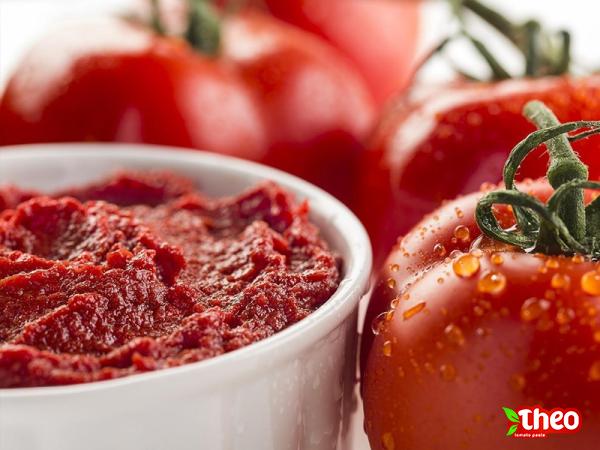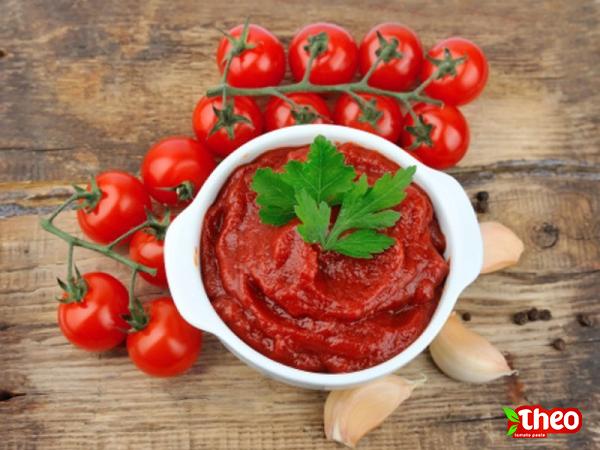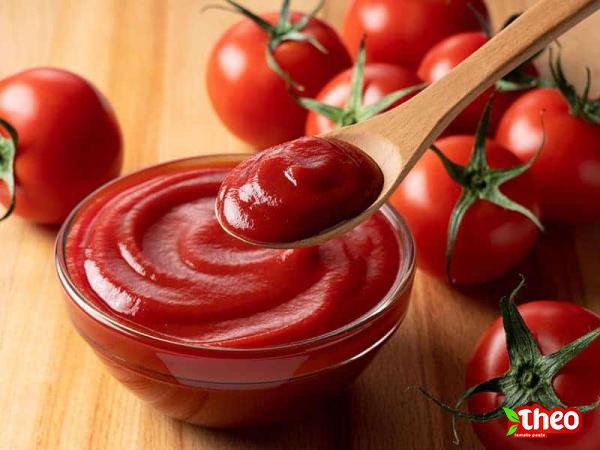Tomato Paste – The Perfect Ketchup Substitute: Where to Buy at a Cheap Price Introduction: When it comes to ketchup substitutes, tomato paste stands out as the ideal option for its rich tomato flavor and versatility in various recipes. Tomato paste is a concentrated form of tomatoes often used in sauces, soups, and stews to enhance the taste. Additionally, it can act as a cheaper alternative to ketchup without compromising on flavor. In this article, we will explore the reasons why tomato paste makes an excellent ketchup substitute and provide information on where to buy it at a reasonable price. Advantages of Tomato Paste as a Ketchup Substitute: 1. Flavor Intensity: Tomato paste offers a concentrated and intense tomato flavor that enhances the taste of a variety of dishes. Unlike ketchup, which often contains additional spices, sweeteners, and tanginess, tomato paste allows you to enjoy the pure essence of tomatoes in your recipes. 2. Versatility: Tomato paste can be incorporated into a wide range of recipes due to its thick consistency and concentrated flavor. It serves as an excellent base for homemade pasta sauces, pizza sauces, meat dishes, marinades, and many more. Its versatility allows you to customize the taste and adjust the seasoning according to your preferences. 3. Health Benefits: Compared to store-bought ketchup, which may contain high levels of added sugars, preservatives, and artificial ingredients, tomato paste offers a healthier alternative. It is a nutrient-dense food that provides essential vitamins and minerals, such as vitamins A, C, and K, as well as potassium and lycopene, a powerful antioxidant known for its potential health benefits. 4. Shelf Life: Tomato paste has a longer shelf life compared to ketchup, as it is typically sold in small cans or tubes. This makes it a cost-effective option, allowing you to use it as needed without worrying about spoilage or wastage. By keeping tomato paste in the refrigerator, you can extend its shelf life even further.
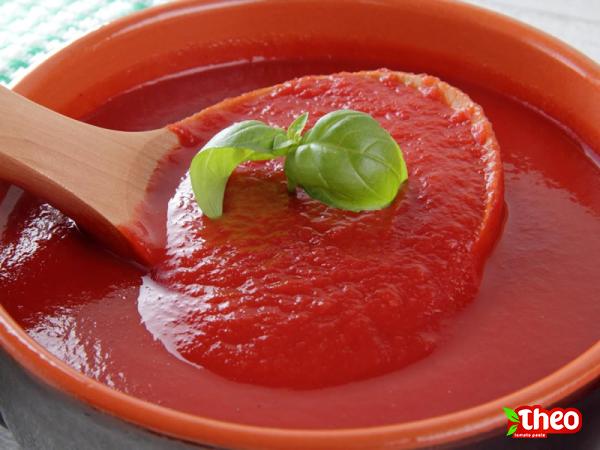
tomato paste
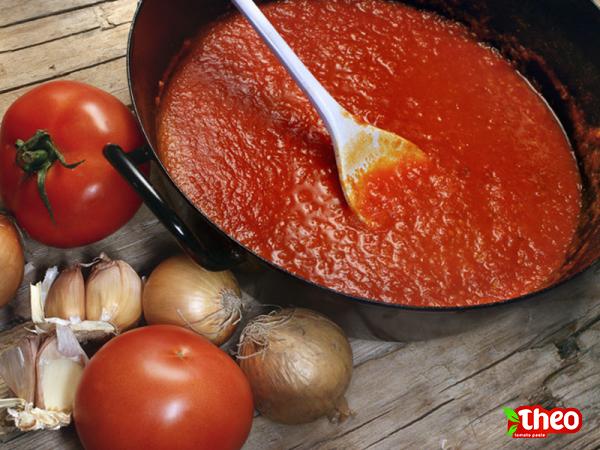 Where to Buy Tomato Paste at a Cheap Price: 1. Local Grocery Stores: Most local grocery stores stock tomato paste in the canned goods section. You can often find various brands and sizes to choose from, enabling you to compare prices and select the most affordable option. Look for promotional offers or discounts that may help you save on your purchase. 2. Wholesale Stores: Warehouse clubs or wholesale stores like Costco, Sam’s Club, or BJ’s Wholesale Club often offer tomato paste in larger quantities at discounted prices. Buying in bulk can be a cost-effective option, especially if you frequently use tomato paste in your cooking. These stores may also have their own brands that provide a cheaper alternative to well-known brands. 3. Online Retailers: Shopping online for tomato paste provides access to a wide range of brands and prices. Online retailers like Amazon, Walmart, and Instacart offer the convenience of comparing prices and reading customer reviews to make an informed purchasing decision. Look out for deals, discounts, or subscribe-and-save options that could save you money in the long run. 4. International Grocery Stores: Consider visiting international grocery stores or specialty food markets in your area. These stores often carry tomato paste brands from different countries, providing a unique taste and potentially a lower price point. Exploring ethnic markets can be a fun and cost-effective way to find quality tomato paste at a cheaper price. 5. Discount Stores: Discount stores, such as Aldi, Dollar Tree, or Family Dollar, sometimes offer tomato paste at significantly lower prices compared to traditional grocery stores. While the selection may be limited, these stores can be a great option if budget-friendly shopping is a priority.
Where to Buy Tomato Paste at a Cheap Price: 1. Local Grocery Stores: Most local grocery stores stock tomato paste in the canned goods section. You can often find various brands and sizes to choose from, enabling you to compare prices and select the most affordable option. Look for promotional offers or discounts that may help you save on your purchase. 2. Wholesale Stores: Warehouse clubs or wholesale stores like Costco, Sam’s Club, or BJ’s Wholesale Club often offer tomato paste in larger quantities at discounted prices. Buying in bulk can be a cost-effective option, especially if you frequently use tomato paste in your cooking. These stores may also have their own brands that provide a cheaper alternative to well-known brands. 3. Online Retailers: Shopping online for tomato paste provides access to a wide range of brands and prices. Online retailers like Amazon, Walmart, and Instacart offer the convenience of comparing prices and reading customer reviews to make an informed purchasing decision. Look out for deals, discounts, or subscribe-and-save options that could save you money in the long run. 4. International Grocery Stores: Consider visiting international grocery stores or specialty food markets in your area. These stores often carry tomato paste brands from different countries, providing a unique taste and potentially a lower price point. Exploring ethnic markets can be a fun and cost-effective way to find quality tomato paste at a cheaper price. 5. Discount Stores: Discount stores, such as Aldi, Dollar Tree, or Family Dollar, sometimes offer tomato paste at significantly lower prices compared to traditional grocery stores. While the selection may be limited, these stores can be a great option if budget-friendly shopping is a priority.
Specifications of tomato paste
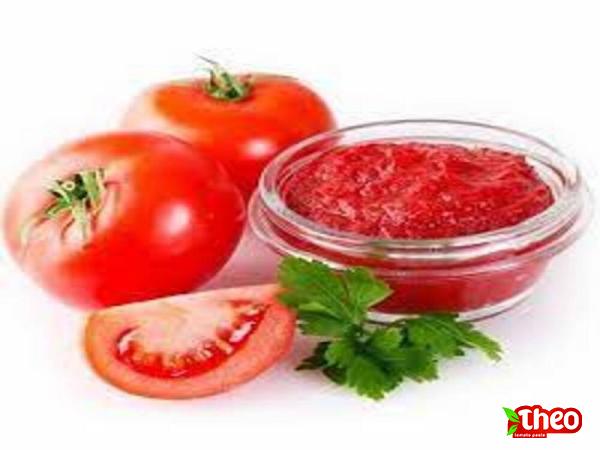 Conclusion: Tomato paste serves as an excellent substitute for ketchup, offering a concentrated tomato flavor, versatility in cooking, and additional health benefits. By exploring various purchasing options, such as local grocery stores, wholesale stores, online retailers, international grocery stores, and discount stores, you can find tomato paste at a cheap price without compromising on quality. Incorporate tomato paste into your favorite recipes and enjoy a truly tomato-rich flavor while reaping the benefits of a budget-friendly substitute.Headings: 1. The Growing Demand for Tomato Paste as a Ketchup Substitute 2. Exploring the Potential Market Opportunities 3. The Role of Competitive Pricing in Capturing the Market 4. Packaging and Branding Strategies for Tomato Paste Manufacturers 5. Distribution Channels for Tomato Paste Suppliers 6. Marketing and Promotion Techniques to Boost Sales 7. Capitalizing on Health-conscious Consumers’ Preferences 8. Emphasizing the Versatility of Tomato Paste in Cooking 9. Expanding the Customer Base through Online Platforms 10. Collaborating with Restaurants and Caterers for Bulk Sales 11. Leveraging Social Media Influencers for Product Endorsement 12. Sustainable Practices in Tomato Paste Production 1. The Growing Demand for Tomato Paste as a Ketchup Substitute Over the past few years, there has been a noticeable shift in consumer preferences towards healthier and more natural food options. This change has led to the growing popularity of tomato paste as a ketchup substitute due to its rich flavor and nutritional profile. As more people seek alternatives to processed and sugar-laden condiments, the demand for tomato paste continues to rise. 2. Exploring the Potential Market Opportunities The increasing demand for tomato paste opens up several market opportunities for manufacturers and suppliers. Consumer awareness about the health benefits and versatility of tomato paste presents avenues for product expansion and innovation. Manufacturers can tap into niche markets by developing organic or low-sodium options to cater to health-conscious consumers. 3. The Role of Competitive Pricing in Capturing the Market In order to capture a significant share of the market, pricing strategy plays a crucial role. Manufacturers should set competitive prices for their tomato paste products, especially when positioning it as a substitute for ketchup. By keeping the prices lower than traditional ketchup options and emphasizing the product’s superior taste and quality, manufacturers can attract price-sensitive customers.
Conclusion: Tomato paste serves as an excellent substitute for ketchup, offering a concentrated tomato flavor, versatility in cooking, and additional health benefits. By exploring various purchasing options, such as local grocery stores, wholesale stores, online retailers, international grocery stores, and discount stores, you can find tomato paste at a cheap price without compromising on quality. Incorporate tomato paste into your favorite recipes and enjoy a truly tomato-rich flavor while reaping the benefits of a budget-friendly substitute.Headings: 1. The Growing Demand for Tomato Paste as a Ketchup Substitute 2. Exploring the Potential Market Opportunities 3. The Role of Competitive Pricing in Capturing the Market 4. Packaging and Branding Strategies for Tomato Paste Manufacturers 5. Distribution Channels for Tomato Paste Suppliers 6. Marketing and Promotion Techniques to Boost Sales 7. Capitalizing on Health-conscious Consumers’ Preferences 8. Emphasizing the Versatility of Tomato Paste in Cooking 9. Expanding the Customer Base through Online Platforms 10. Collaborating with Restaurants and Caterers for Bulk Sales 11. Leveraging Social Media Influencers for Product Endorsement 12. Sustainable Practices in Tomato Paste Production 1. The Growing Demand for Tomato Paste as a Ketchup Substitute Over the past few years, there has been a noticeable shift in consumer preferences towards healthier and more natural food options. This change has led to the growing popularity of tomato paste as a ketchup substitute due to its rich flavor and nutritional profile. As more people seek alternatives to processed and sugar-laden condiments, the demand for tomato paste continues to rise. 2. Exploring the Potential Market Opportunities The increasing demand for tomato paste opens up several market opportunities for manufacturers and suppliers. Consumer awareness about the health benefits and versatility of tomato paste presents avenues for product expansion and innovation. Manufacturers can tap into niche markets by developing organic or low-sodium options to cater to health-conscious consumers. 3. The Role of Competitive Pricing in Capturing the Market In order to capture a significant share of the market, pricing strategy plays a crucial role. Manufacturers should set competitive prices for their tomato paste products, especially when positioning it as a substitute for ketchup. By keeping the prices lower than traditional ketchup options and emphasizing the product’s superior taste and quality, manufacturers can attract price-sensitive customers.
buy tomato paste
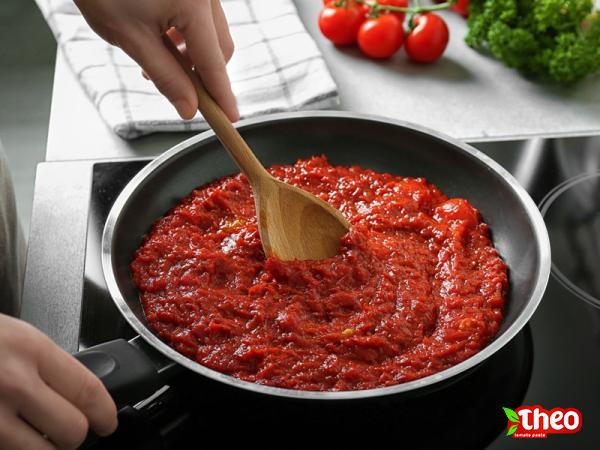 4. Packaging and Branding Strategies for Tomato Paste Manufacturers Packaging plays a vital role in catching consumers’ attention and influencing purchasing decisions. Tomato paste manufacturers should invest in attractive and informative packaging to differentiate their products from others on the shelf. Clear labeling, highlighting the product’s natural ingredients and nutritional benefits, can help build trust and establish brand loyalty. 5. Distribution Channels for Tomato Paste Suppliers Efficient distribution channels are crucial for the success and widespread availability of tomato paste products. In addition to supplying local grocery stores, manufacturers should explore partnerships with wholesalers, distributors, and food service providers to expand their reach. Collaborating with online marketplaces and delivery platforms can also ensure accessibility for customers in remote areas. 6. Marketing and Promotion Techniques to Boost Sales To increase awareness and generate sales, strategic marketing and promotion techniques are essential. Conducting online and offline advertising campaigns, focusing on the versatility, taste, and health benefits of tomato paste, can effectively target both households and professional kitchens. Sampling programs at grocery stores and participating in food events can also create buzz around the product. 7. Capitalizing on Health-conscious Consumers’ Preferences Health-conscious consumers are increasingly looking for healthier alternatives to traditional condiments. Tomato paste manufacturers can position their products as a nutritious and natural option, free from additives and high levels of added sugars commonly found in ketchup. Emphasizing the presence of essential vitamins, minerals, and antioxidants can attract health-focused consumers. 8. Emphasizing the Versatility of Tomato Paste in Cooking One of the key advantages of tomato paste as a ketchup substitute is its versatility in various recipes. Manufacturers can educate consumers on the different ways tomato paste can be used in cooking, such as in pasta sauces, soups, stews, and curries. Providing recipe suggestions or hosting instructional cooking videos can help consumers understand its culinary potential. 9. Expanding the Customer Base through Online Platforms E-commerce platforms provide a significant opportunity for tomato paste suppliers to reach a wider customer base. Creating an online presence via company websites or partnering with established online retailers can enable consumers to conveniently purchase tomato paste from the comfort of their homes. Offering competitive prices, attractive packaging, and fast and reliable shipping options can help attract online shoppers. 10. Collaborating with Restaurants and Caterers for Bulk Sales Establishing partnerships with local restaurants, catering services, and food distributors can lead to bulk sales of tomato paste. Restaurants and chefs use tomato paste as a base ingredient in various dishes, making it an essential staple in commercial kitchens. Offering discounted prices for bulk orders and promoting the superior taste and quality of tomato paste can incentivize collaboration. 11. Leveraging Social Media Influencers for Product Endorsement Social media influencers have a significant impact on consumer purchasing decisions. Tomato paste manufacturers can collaborate with influencers, such as food bloggers, chefs, and nutritionists, to endorse their products. Encouraging influencers to create content highlighting the benefits of using tomato paste and sharing recipes that incorporate it can increase product visibility and credibility. 12. Sustainable Practices in Tomato Paste Production As sustainability becomes an increasing concern for consumers, tomato paste manufacturers should prioritize eco-friendly practices. This can include sourcing tomatoes from local farmers, implementing efficient production processes to minimize waste, and using recyclable or biodegradable packaging materials. Emphasizing sustainability can help attract environmentally-conscious consumers and differentiate the brand in the market. Conclusion Tomato paste serves as an excellent ketchup substitute due to its rich flavor, versatility in cooking, and health benefits. Manufacturers and suppliers of tomato paste can capitalize on the growing demand through competitive pricing, strategic packaging and branding, efficient distribution channels, and focused marketing and promotion techniques. By targeting health-conscious consumers, expanding online presence, collaborating with restaurants, leveraging social media influencers, and adopting sustainable practices, they can establish a strong foothold in the market and meet the diverse needs of customers seeking an alternative to traditional ketchup.
4. Packaging and Branding Strategies for Tomato Paste Manufacturers Packaging plays a vital role in catching consumers’ attention and influencing purchasing decisions. Tomato paste manufacturers should invest in attractive and informative packaging to differentiate their products from others on the shelf. Clear labeling, highlighting the product’s natural ingredients and nutritional benefits, can help build trust and establish brand loyalty. 5. Distribution Channels for Tomato Paste Suppliers Efficient distribution channels are crucial for the success and widespread availability of tomato paste products. In addition to supplying local grocery stores, manufacturers should explore partnerships with wholesalers, distributors, and food service providers to expand their reach. Collaborating with online marketplaces and delivery platforms can also ensure accessibility for customers in remote areas. 6. Marketing and Promotion Techniques to Boost Sales To increase awareness and generate sales, strategic marketing and promotion techniques are essential. Conducting online and offline advertising campaigns, focusing on the versatility, taste, and health benefits of tomato paste, can effectively target both households and professional kitchens. Sampling programs at grocery stores and participating in food events can also create buzz around the product. 7. Capitalizing on Health-conscious Consumers’ Preferences Health-conscious consumers are increasingly looking for healthier alternatives to traditional condiments. Tomato paste manufacturers can position their products as a nutritious and natural option, free from additives and high levels of added sugars commonly found in ketchup. Emphasizing the presence of essential vitamins, minerals, and antioxidants can attract health-focused consumers. 8. Emphasizing the Versatility of Tomato Paste in Cooking One of the key advantages of tomato paste as a ketchup substitute is its versatility in various recipes. Manufacturers can educate consumers on the different ways tomato paste can be used in cooking, such as in pasta sauces, soups, stews, and curries. Providing recipe suggestions or hosting instructional cooking videos can help consumers understand its culinary potential. 9. Expanding the Customer Base through Online Platforms E-commerce platforms provide a significant opportunity for tomato paste suppliers to reach a wider customer base. Creating an online presence via company websites or partnering with established online retailers can enable consumers to conveniently purchase tomato paste from the comfort of their homes. Offering competitive prices, attractive packaging, and fast and reliable shipping options can help attract online shoppers. 10. Collaborating with Restaurants and Caterers for Bulk Sales Establishing partnerships with local restaurants, catering services, and food distributors can lead to bulk sales of tomato paste. Restaurants and chefs use tomato paste as a base ingredient in various dishes, making it an essential staple in commercial kitchens. Offering discounted prices for bulk orders and promoting the superior taste and quality of tomato paste can incentivize collaboration. 11. Leveraging Social Media Influencers for Product Endorsement Social media influencers have a significant impact on consumer purchasing decisions. Tomato paste manufacturers can collaborate with influencers, such as food bloggers, chefs, and nutritionists, to endorse their products. Encouraging influencers to create content highlighting the benefits of using tomato paste and sharing recipes that incorporate it can increase product visibility and credibility. 12. Sustainable Practices in Tomato Paste Production As sustainability becomes an increasing concern for consumers, tomato paste manufacturers should prioritize eco-friendly practices. This can include sourcing tomatoes from local farmers, implementing efficient production processes to minimize waste, and using recyclable or biodegradable packaging materials. Emphasizing sustainability can help attract environmentally-conscious consumers and differentiate the brand in the market. Conclusion Tomato paste serves as an excellent ketchup substitute due to its rich flavor, versatility in cooking, and health benefits. Manufacturers and suppliers of tomato paste can capitalize on the growing demand through competitive pricing, strategic packaging and branding, efficient distribution channels, and focused marketing and promotion techniques. By targeting health-conscious consumers, expanding online presence, collaborating with restaurants, leveraging social media influencers, and adopting sustainable practices, they can establish a strong foothold in the market and meet the diverse needs of customers seeking an alternative to traditional ketchup.

